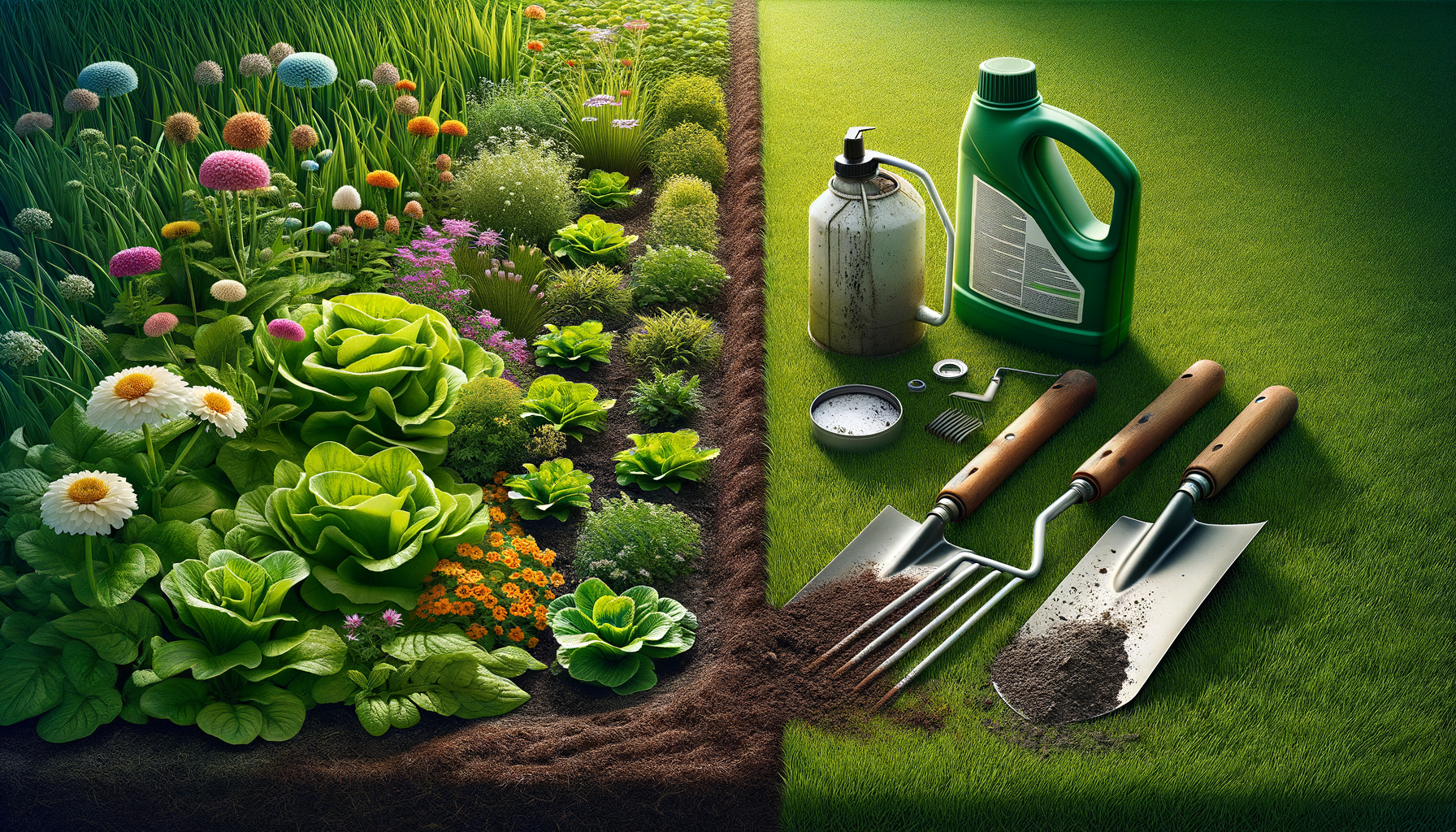Introduction: The Importance of Effective Weed Control
Maintaining a healthy and thriving garden requires diligent care and attention, particularly when it comes to managing weeds. Unwanted plants can compete with your garden flora for nutrients, water, and sunlight, often leading to reduced growth and vitality. Understanding various weed control methods can significantly enhance your gardening efforts, ensuring your plants flourish without the competition of invasive species.
Three Effective Weed Removal Solutions for Your Yard
Keeping your yard free from weeds is essential for maintaining its aesthetic appeal and health. Here are three effective solutions:
- Manual Removal: This traditional method involves physically pulling weeds from the ground. While labor-intensive, it allows for precise removal without harming surrounding plants.
- Mulching: Applying a layer of organic material like bark or straw around plants can suppress weed growth by blocking sunlight and retaining soil moisture.
- Boiling Water: Pouring boiling water directly onto weeds can kill them instantly by destroying their cell structure, making it an eco-friendly option for small infestations.
Each method offers unique advantages, and combining them can enhance their effectiveness, leading to a weed-free garden environment.
Differences Between Natural and Chemical Weed Control Methods
Weed control methods can be broadly categorized into natural and chemical approaches, each with distinct characteristics:
- Natural Methods: These include manual removal, mulching, and using natural herbicides like vinegar. They are environmentally friendly and safe for pets and humans but may require more time and effort.
- Chemical Methods: These involve using synthetic herbicides to eliminate weeds. While highly effective and quick, they can pose risks to non-target plants, soil health, and the environment if not used correctly.
Choosing between these methods depends on your garden’s specific needs, environmental considerations, and personal preferences.
Tips for Long-Term Garden Maintenance
Achieving a sustainable and healthy garden requires consistent maintenance over time. Here are some tips to ensure long-term success:
- Regular Monitoring: Frequently check your garden for signs of weeds or pests. Early detection can prevent larger problems from developing.
- Soil Health: Maintain soil fertility through regular composting and avoid over-tilling, which can disrupt soil structure.
- Plant Selection: Choose native or well-adapted plant species that require less maintenance and are resistant to local pests and diseases.
Implementing these practices will contribute to a thriving garden ecosystem, reducing the need for intensive weed control efforts.
Conclusion: Cultivating a Weed-Free Garden
Effective weed management is a crucial component of successful gardening. By understanding and implementing various weed control methods, both natural and chemical, you can create a balanced approach that suits your garden’s unique needs. Regular maintenance and careful plant selection further enhance your garden’s resilience, ensuring it remains a beautiful and productive space for years to come.




Leave a Reply